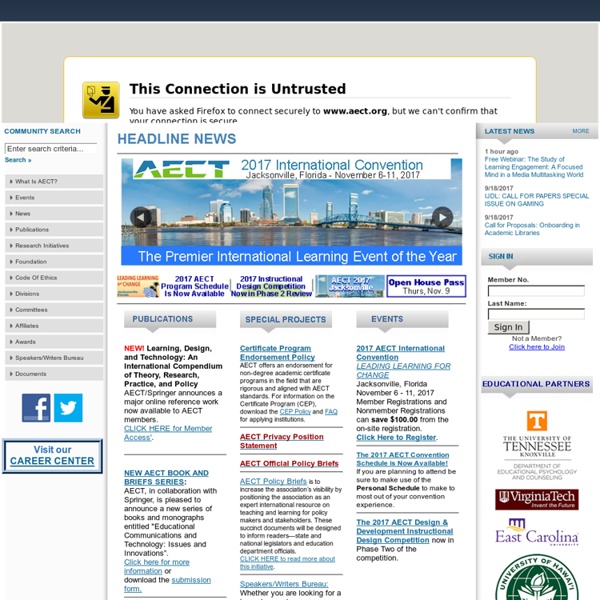



edWeb: A professional online community for educators The eLearning Guild: Community & Resources for eLearning Professionals Educational technology - Wikipedia Use of technology in education to improve learning and teaching Educational technology (commonly abbreviated as EduTech, or EdTech) is the combined use of computer hardware, software, and educational theory and practice to facilitate learning.[1] When referred to with its abbreviation, EdTech, it is often referring to the industry of companies that create educational technology.[2][3] Definition[edit]
SALT 8 Ways Technology Is Improving Education The Education Tech Series is supported by Dell The Power To Do More, where you'll find perspectives, trends and stories that inspire Dell to create technology solutions that work harder for its customers so they can do and achieve more. Don Knezek, the CEO of the International Society for Technology in Education, compares education without technology to the medical profession without technology. “If in 1970 you had knee surgery, you got a huge scar,” he says. “Now, if you have knee surgery you have two little dots.” A list of professional organizations for K12 leaders AAHPERD, American Alliance for Health, Physical Education, Recreation and Dance (www.aahperd.org) AASA, American Association of School Administrators (www.aasa.org) AASL, American Association of School Librarians (www.ala.org/aasl) ACEI, Association for Childhood Education International (www.acei.org)
Benefits of Joining a Professional Association or Organization We believe joining a professional association or organization is one of the best things you can do! Read on for more: No matter what your chosen field of study, as a graduate student you want to remain in the mainstream of your desired field. Of course there are numerous ways that this could be accomplished - networking, trade and professional journals, etc. However, one great way to draw on all of those resources is to join a professional association. Professional organizations are available for almost any career field.
Association of American Educators